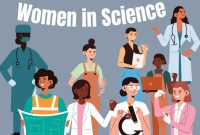Science is not just a collection of facts or theories confined to laboratories; it is a vital part of our everyday lives. From the technology we use to the food we eat, science underpins almost every aspect of modern living. It helps us understand the natural world, solve problems, and improve our quality of life. The role of science is so deeply embedded in our daily routines that we often take it for granted. In this article, we explore how science shapes our world and the many ways it impacts our day-to-day activities.
Science in Technology and Communication
One of the most visible ways science influences our lives is through technology. Every time we use a smartphone, browse the internet, or stream a movie, we are benefiting from decades of scientific innovation. Advances in physics, engineering, and computer science have led to the development of microchips, satellites, and fiber-optic cables, enabling instant communication and access to information.
Social media platforms, video calls, and GPS navigation systems all rely on scientific principles to function. For example, GPS technology uses satellite signals and Einstein’s theory of relativity to provide accurate location data. Similarly, the internet is built on algorithms and network theories that allow billions of devices to connect seamlessly.
Science in Healthcare and Medicine
Modern healthcare is one of the most profound examples of how science improves human life. Scientific research has led to the development of vaccines, antibiotics, and medical imaging technologies that save millions of lives every year. From the discovery of penicillin to the rapid creation of COVID-19 vaccines, science has played a pivotal role in combating diseases and improving public health.
Innovations like MRI machines, CT scans, and robotic surgery demonstrate how physics, biology, and engineering come together to revolutionize medical diagnosis and treatment. Additionally, breakthroughs in genetics and biotechnology have enabled personalized medicine, where treatments are tailored to an individual’s genetic makeup.
Science also underpins preventive healthcare. For instance, research on nutrition and exercise informs guidelines for maintaining a healthy lifestyle, helping people live longer and healthier lives.
Science in Food and Agriculture
The food we consume every day is another area where science plays a critical role. Agricultural science has led to the development of high-yield crops, pest-resistant plants, and efficient farming techniques that help feed the world’s growing population. Genetically modified organisms (GMOs), for example, have improved food security by making crops more resilient to diseases and environmental stress.
Food science also ensures the safety and quality of the products we eat. Innovations in food preservation, packaging, and storage extend shelf life and reduce waste. Moreover, scientific research into nutrition helps us understand the benefits of a balanced diet and the impact of various foods on our health.
Science in Transportation
Whether it’s cars, trains, airplanes, or electric scooters, transportation systems are a product of scientific advancement. Principles of physics, such as aerodynamics and thermodynamics, have enabled engineers to design faster, safer, and more efficient modes of transport. For instance, the development of fuel-efficient engines and electric vehicles has been driven by a need to reduce carbon emissions and combat climate change.
Science has also revolutionized public transportation systems. High-speed trains, autonomous vehicles, and ride-sharing apps are examples of how technology continues to evolve, making transportation more convenient and sustainable.
Science in Energy and the Environment
Our reliance on energy for electricity, heating, and transportation is made possible by scientific research. Advances in physics and chemistry have enabled the generation of power from diverse sources, including fossil fuels, nuclear energy, and renewable resources such as wind, solar, and hydroelectric power. The development of energy storage solutions, like lithium-ion batteries, is crucial for powering electric vehicles and integrating renewable energy into the grid.
Science also plays a key role in addressing environmental challenges. Climate science helps us understand the impact of greenhouse gases on global warming, guiding policies to mitigate climate change. Innovations in waste management, recycling, and sustainable materials aim to reduce humanity’s environmental footprint and preserve the planet for future generations.
Science in Daily Conveniences
Many everyday conveniences owe their existence to scientific principles. Household appliances like refrigerators, washing machines, and microwaves rely on discoveries in physics and engineering. Even something as simple as turning on a light switch is made possible by our understanding of electricity and electromagnetism.
Science also enhances our leisure and entertainment. Television screens, virtual reality headsets, and gaming consoles are all products of advancements in optics, electronics, and computer science. Similarly, streaming music or movies involves complex data compression algorithms and network infrastructure.
Science in Decision-Making and Critical Thinking
Science is not just about technology and innovation; it also fosters critical thinking and evidence-based decision-making. The scientific method teaches us to question assumptions, test hypotheses, and draw conclusions based on data. These skills are invaluable in everyday situations, from choosing a reliable product to evaluating news sources.
For instance, understanding scientific studies can help consumers make informed choices about health supplements, skincare products, or fitness regimens. Recognizing credible information becomes especially important in an age of misinformation, where pseudoscience and myths can easily spread.
The Role of Science in Problem-Solving
Science equips us with the tools to solve both small and large-scale problems. On a personal level, it can help us troubleshoot a malfunctioning appliance or understand the best ways to conserve energy at home. On a global scale, science addresses complex challenges like pandemics, food shortages, and climate change.
For example, during the COVID-19 pandemic, scientists quickly mobilized to understand the virus, develop vaccines, and create testing protocols. Their work underscored the importance of global collaboration and the ability of science to respond to urgent crises.
The Future of Science in Everyday Life
As science continues to evolve, its impact on everyday life will only grow. Emerging fields such as artificial intelligence, nanotechnology, and quantum computing promise to revolutionize industries and redefine what is possible. AI-powered assistants, for instance, are already becoming integral parts of our lives, helping with tasks like managing schedules, answering questions, and even diagnosing diseases.
At the same time, ethical considerations and sustainability will play a larger role in shaping how scientific advancements are implemented. Balancing innovation with social responsibility will be crucial as we navigate the challenges of the future.
Conclusion
Science is a cornerstone of modern life, shaping the way we live, work, and interact with the world. Its influence is evident in the technology we use, the food we consume, the healthcare we receive, and the decisions we make. By fostering curiosity, innovation, and critical thinking, science not only improves our quality of life but also equips us to tackle the challenges of tomorrow. As we continue to explore and harness the power of science, its role in everyday life will remain indispensable, driving progress and shaping a better future for all.




